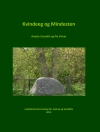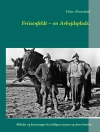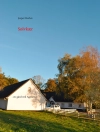This exciting collection of original essays provides students and professionals with an international and comparative examination of changes in global cities, revealing a growing pattern of social and spatial division or polarization.
Содержание
List of Figures vii
List of Maps viii
List of Tables x
List of Contributors xii
Series Editors’ Preface xv
Preface xvii
1 Introduction 1
Peter Marcuse and Ronald van Kempen
2 The Unavoidable Continuities of the City 22
Robert A. Beauregard and Anne Haila
3 From the Metropolis to Globalization: The Dialectics of Race and Urban Form 37
William W. Goldsmith
4 From Colonial City to Globalizing City? The Far-fromcomplete Spatial Transformation of Calcutta 56
Sanjoy Chakravorty
5 Rio de Janeiro: Emerging Dualization in a Historically Unequal City 78
Luiz Cesar de Queiroz Ribeiro and Edward E. Telles
6 Singapore: the Changing Residential Landscape in a Winner City 95
Leo van Grunsven
7 Tokyo: Patterns of Familiarity and Partitions of Difference 127
Paul Waley
8 Still a Global City: The Racial and Ethnic Segmentation of New York 158
John R. Logan
9 Brussels: Post-Fordist Polarization in a Fordist Spatial Canvas 186
Christian Kesteloot
10 The Imprint of the Post-Fordist Transition on Australian Cities 211
Blair Badcock
11 The Globalization of Frankfurt am Main: Core, Periphery and Social Conflict 228
Roger Keil and Klaus Ronneberger
12 Conclusion: A Changed Spatial Order 249
Peter Marcuse and Ronald van Kempen
List of References 276
Index 302
Об авторе
Peter Marcuse is Professor of Urban Planning at Columbia
University in New York City. He has also taught at the University
of California at Los Angeles, as well as universities in
Johannesburg, Weimar, and Sao Paulo. He has been President of the
Los Angeles City Planning Commission, and a member of a Community
Board in New York City. A lawyer as well as planner, he has written
widely on comparative housing and planning issues.
Ronald van Kempen is Associate Professor of urban
geography at the Urban Research Centre Utrecht at Utrecht
University. His current research focuses on the links between
spatial segregation, social exclusion and the development of
cities. He has published widely on these subjects. He is a member
of the editorial board of the Journal of Housing and the Built
Environment.












